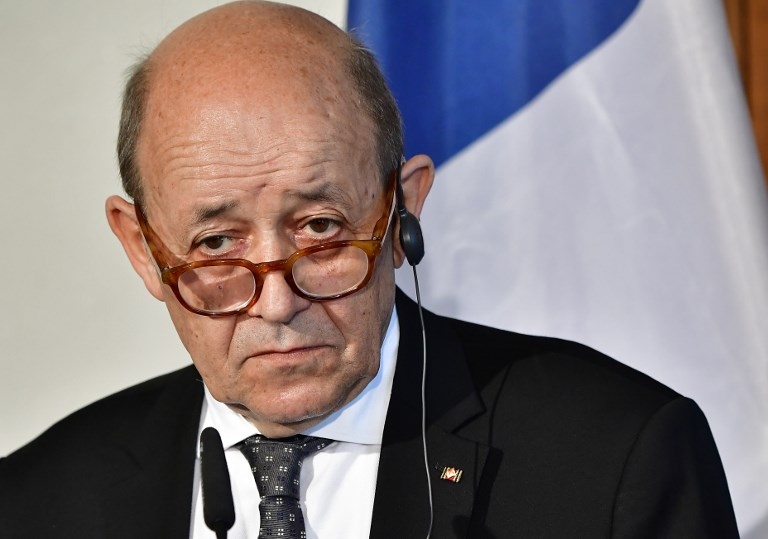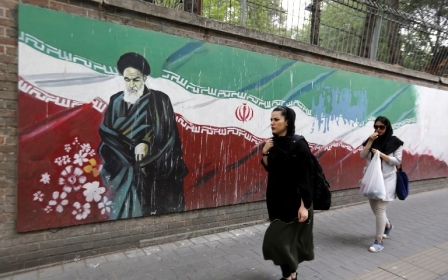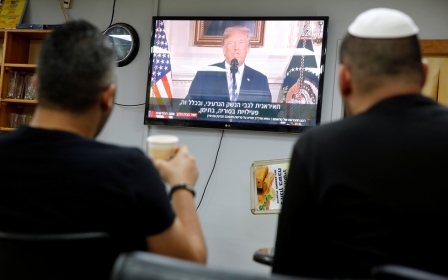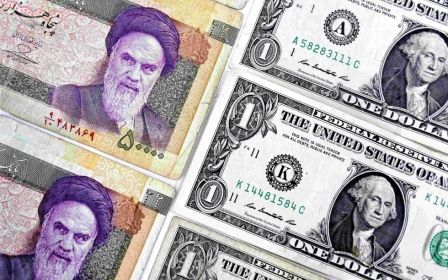'Deal is not dead': EU sticks with Iran nuclear deal as firms left in limbo

European leaders have rebuked Donald Trump over his move to unilaterally scrap the Iran nuclear deal, as business leaders scrabble to understand the impact of the move on their operations.
European Union leaders have insisted that they will stick with the Iran deal, but the move by the US leader to abandon the deal and reimpose sanctions could cost some of Europe’s biggest companies billions of dollars.
We will always comply and adhere to all relevant export control regulations. We are waiting for guidance from the international community
- Ralf Thomas, Siemens chief financial officer
"As long as Iran continues to implement its nuclear-related commitments... the EU will remain committed to the continued full and effective implementation of the nuclear deal," the 28 EU governments said in a joint statement.
"The lifting of nuclear-related sanctions is an essential part of the agreement... The EU stresses its commitment to ensuring that this can continue to be delivered," the EU 28 said.
The joint-statement followed remarks from EU High Representative Federica Mogherini, who said that is was not within Trump’s power to end the accord.
“Let me conclude with a message to Iranian citizens and leaders, to each and every one of them: do not let anyone dismantle this agreement,” she said on Tuesday night.
She added: “It is one of the biggest achievements that diplomacy has ever delivered and we have built this together... This deal belongs to each and every one of us. Stay true to our commitments and we will stay true to ours and together with the rest of the international community we will preserve this nuclear deal.”
Meanwhile, French President Emmanuel Macron spoke with Iranian President Hassan Rouhani on Wednesday, AFP reported. The two leaders pledged to “pursue their joint efforts with all nations involved, with the aim of continued implementation of the nuclear deal and maintaining regional stability", according to the Elysee Palace, adding that France and Iran's foreign ministers would meet "without delay" for talks.
'Wind downs' and waivers
Trump's announcement came despite last-minute European diplomatic activity, including a visit to Washington by British Foreign Secretary Boris Johnson, and a call from Macron.
The European diplomatic push failed to influence Trump, and on Tuesday the US Treasury announced sanctions would be reimposed on Iran.
It promised “wind-down” periods of 90 to 180 days to let firms extricate themselves from agreements with Iran before sanctions start to bite, but that will do little to assuage European firms, such as Total, Airbus, Royal Dutch Shell, which have rushed to sign contracts in Iran since the deal was signed in 2015.
The only hope for European business leaders is that EU diplomats will be able to involve the US in granting case-by-case waivers as part of the process, perhaps in addition to a possible waiver for US aerospace giant Boeing which was originally granted a waiver for a deal to sell 110 planes to Iran, in a deal worth around $20bn.
Without waivers, banks will be prohibited from doing any deals in Iranian rials and manufacturers will be blocked from selling Iranian aluminium steel, coal and even carpets.
The scale of US sanctions means that even firms not operating in the US could be impacted due to a “with-us-or-against-us sanction” in which Washington could tell a company that if it wants to keep trading with Iran it can’t trade with America.
But US national security advisor and Iran hawk John Bolton declined to comment on Tuesday on whether any US or European firms would get a waiver.
“Sanctions are hardly hitting any US companies, but [are aimed] primarily at European ones,” said Carl Bildt, chair of the European Council on Foreign Relations and a former Swedish prime minister.
'Waiting for guidance'
On Wednesday, France’s foreign minister Jean-Yves Le Drian joined EU leaders who have said the “deal is not dead”, but there is widespread concern that the US withdrawal could adversely impact European firms and move the US and Europe closer to a feared trade war.
French firm Renault has a joint venture to make 150,000 cars a year in Iran and Franco-German aerospace firm Airbus has a deal to deliver 100 jets to airlines in Tehran. However, the plane maker has reportedly delivered just three jets so far, and both firms will be fearful of the impact of sanctions.
Those fears will only have increased after the intervention of the newly appointed US ambassador to Germany who warned on Wednesday that firms in Europe should “wind down operations immediately” in Iran, prompting fears that the US will take a hardline on sanctions.
Richard Grenell, a Trump appointee who took office on Tuesday, said: “As Donald Trump said, US sanctions will target critical sectors of Iran’s economy. German companies doing business in Iran should wind down operations immediately.”
German technology giant Siemens has said it will abide by any sanction but like most firms is waiting to see the response from the international community to the deal.
The firm’s chief financial officer, Ralf Thomas, told reporters on Wednesday that the company, which has multi-billion euro (dollar) contracts with Iran for rail, power plant and other projects, was currently assessing the possible impact.
“We will always comply and adhere to all relevant export control regulations,” but “we are waiting for guidance from the international community,” he said.
New MEE newsletter: Jerusalem Dispatch
Sign up to get the latest insights and analysis on Israel-Palestine, alongside Turkey Unpacked and other MEE newsletters
Middle East Eye delivers independent and unrivalled coverage and analysis of the Middle East, North Africa and beyond. To learn more about republishing this content and the associated fees, please fill out this form. More about MEE can be found here.




